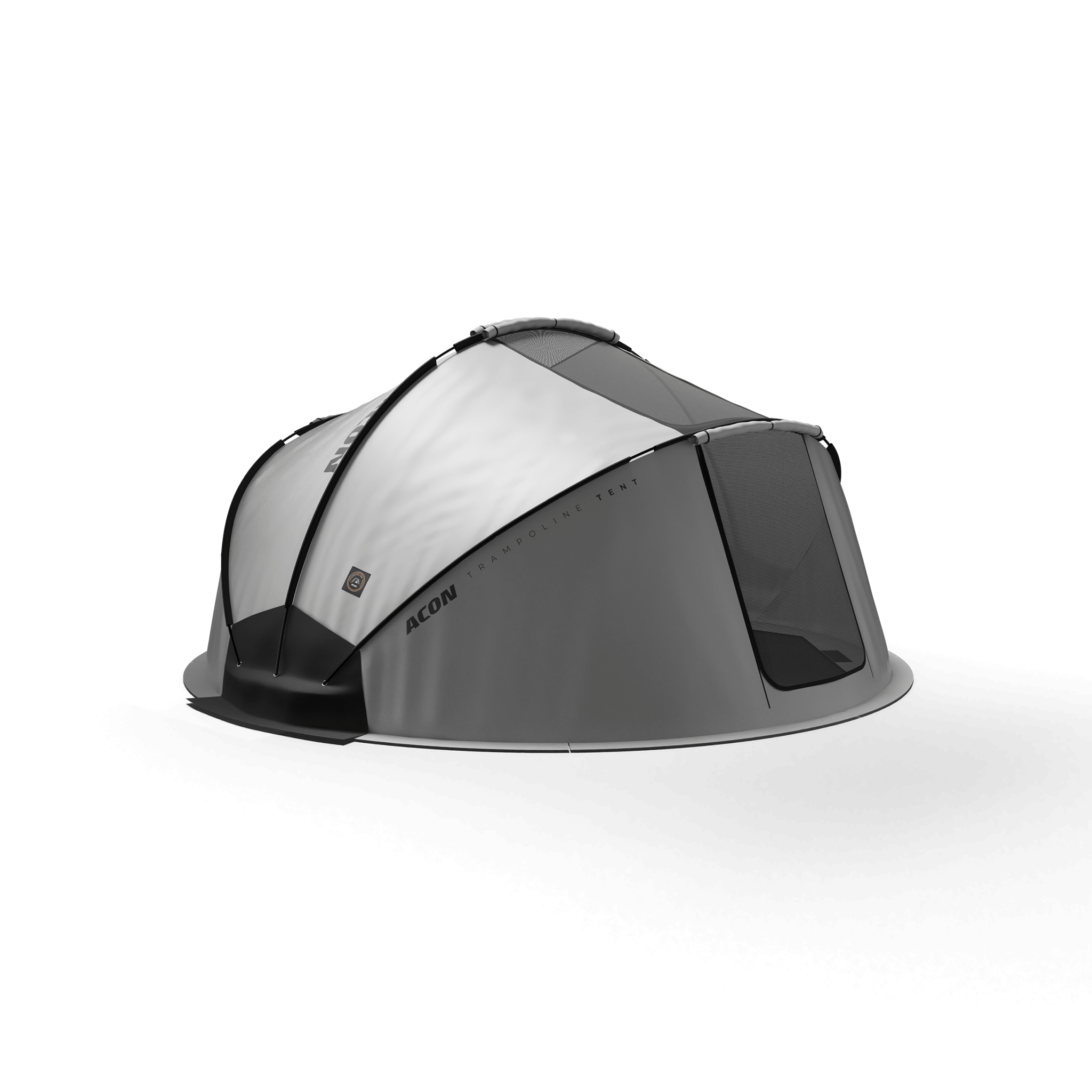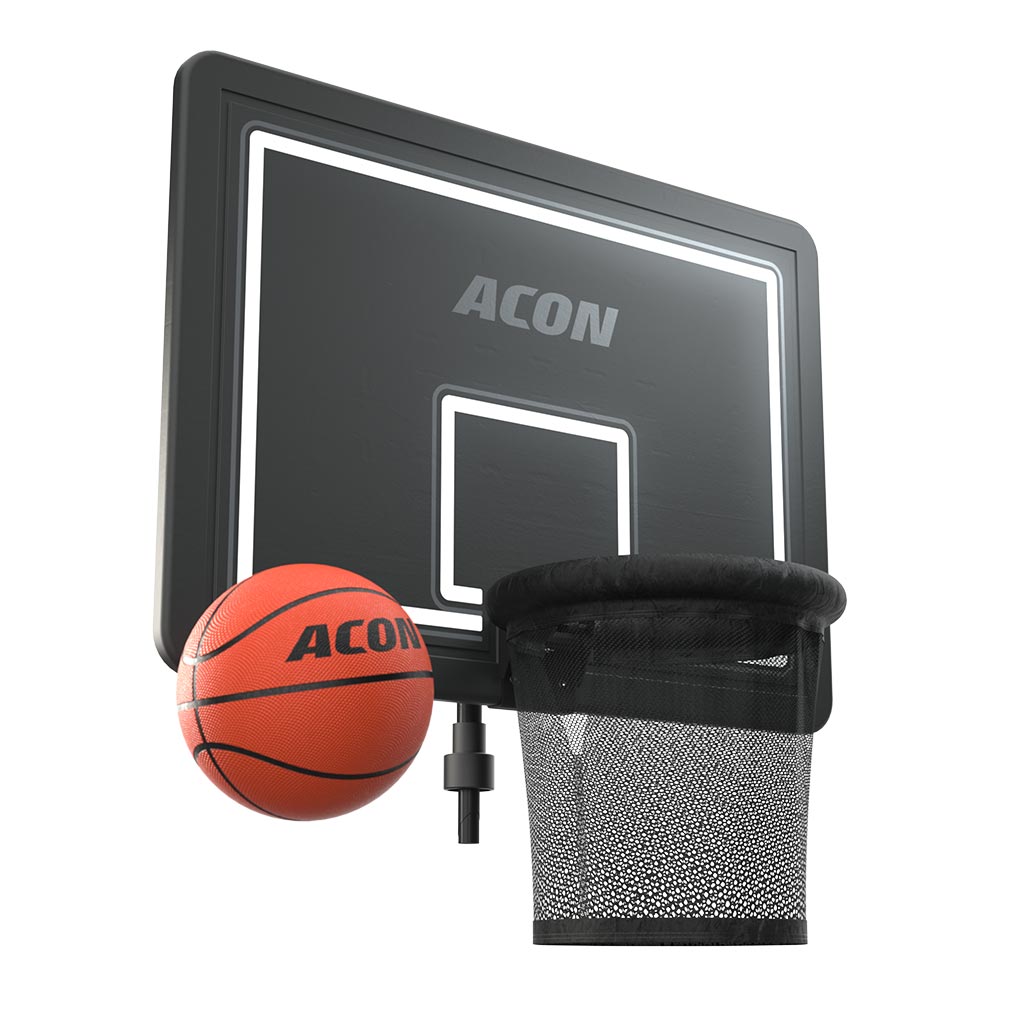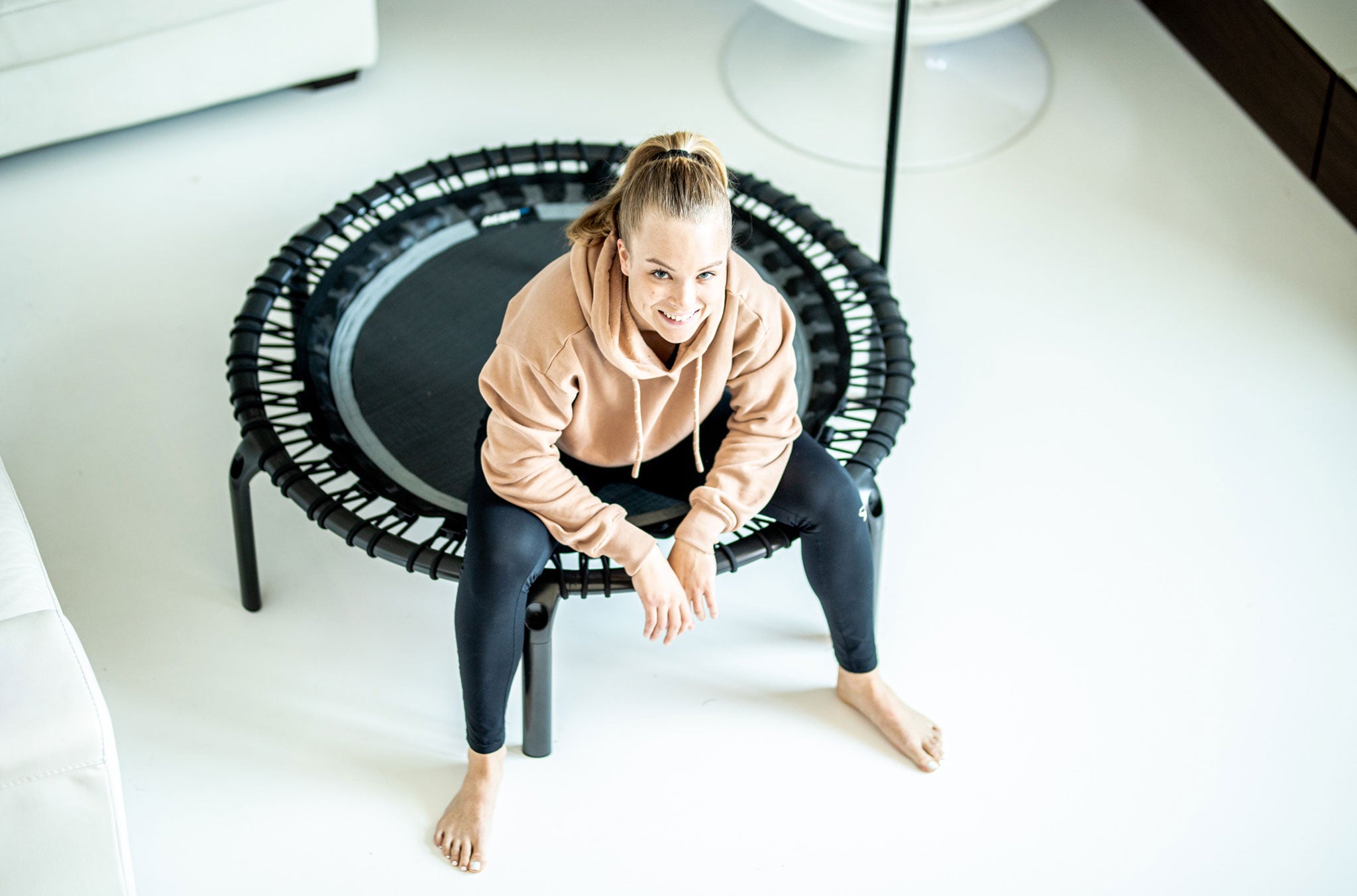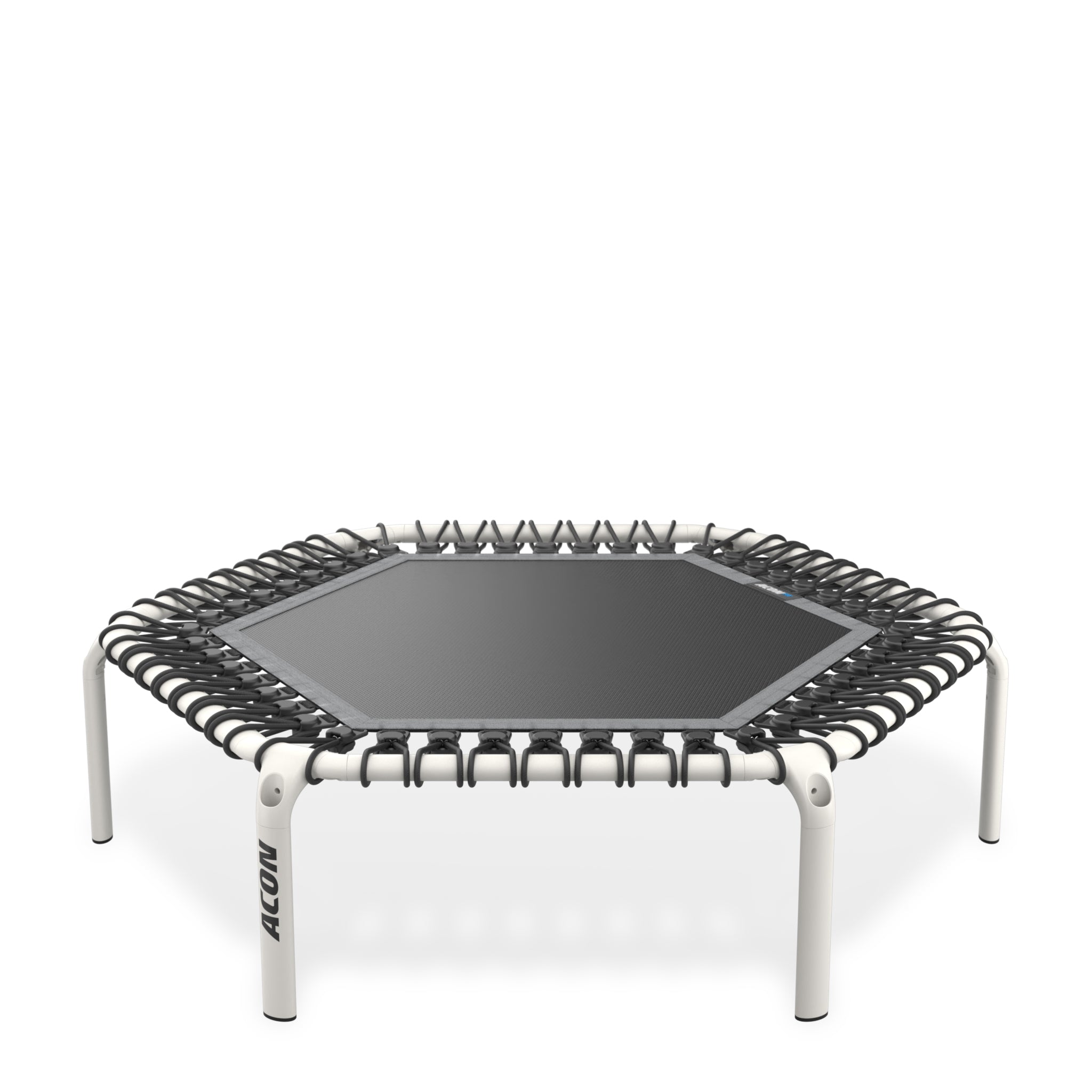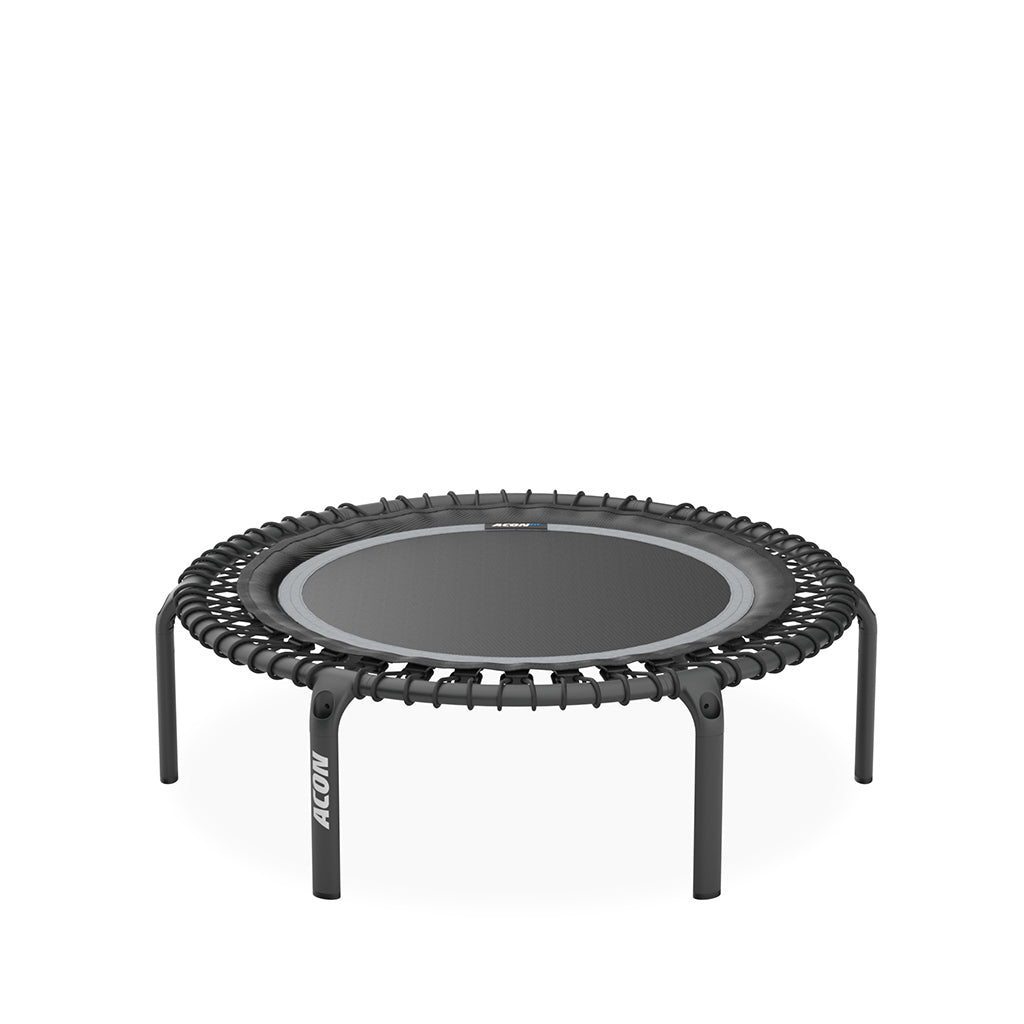Distributacon Inc.
1250 Wayzata Blvd E Unit 1127,
Wayzata, MN 55391, USA
Can you really increase your fitness and improve your health in just 30 minutes a day? With a rebounder workout, yes you can! Not only is bouncing a fun activity, but it is also a great aerobic exercise that increases your heart rate, boosts oxygen levels and improves your cardio health.
From high intensity cardio workouts and strength-building jumps to low impact barre sessions and yoga, it is the best all-round, varied workout you can do at home, at any time of the day or night. It will work your muscles in a safe way as well as tone your body and legs, strengthen your back and core, without putting any strain on your joints.
Bouncing is also a great way to improve your balance and coordination, leading to increased movement, better bone health to help prevent the onset of osteoporosis, and can lower your blood pressure. NASA’s studies demonstrated that using a rebounder can burn more calories per minute than running at a 10 minute per mile pace.
Equipment needed for a 30-minute rebounder workout
A rebounder workout needs very little in the way of equipment other than a rebounder. You can add a handlebar to help you balance and give additional stability – ideal if you are a beginner to rebounding.
Usually, rebounders have a bungee cord spring system that is not only stretchy but also quiet when bouncing. Our round rebounder also has a skirt fitted that covers the springs for added safety, making it ideal for both beginners starting out with a rebounder workout as well as for more experienced, advanced jumpers when performing more demanding movements and leaps.
Whether you are a beginner or a more experienced rebounder, adding a sturdy T-shaped handlebar to your hexagon or round shaped rebounder is highly recommended to provide greater support, aiding balance and helping with more advanced moves.
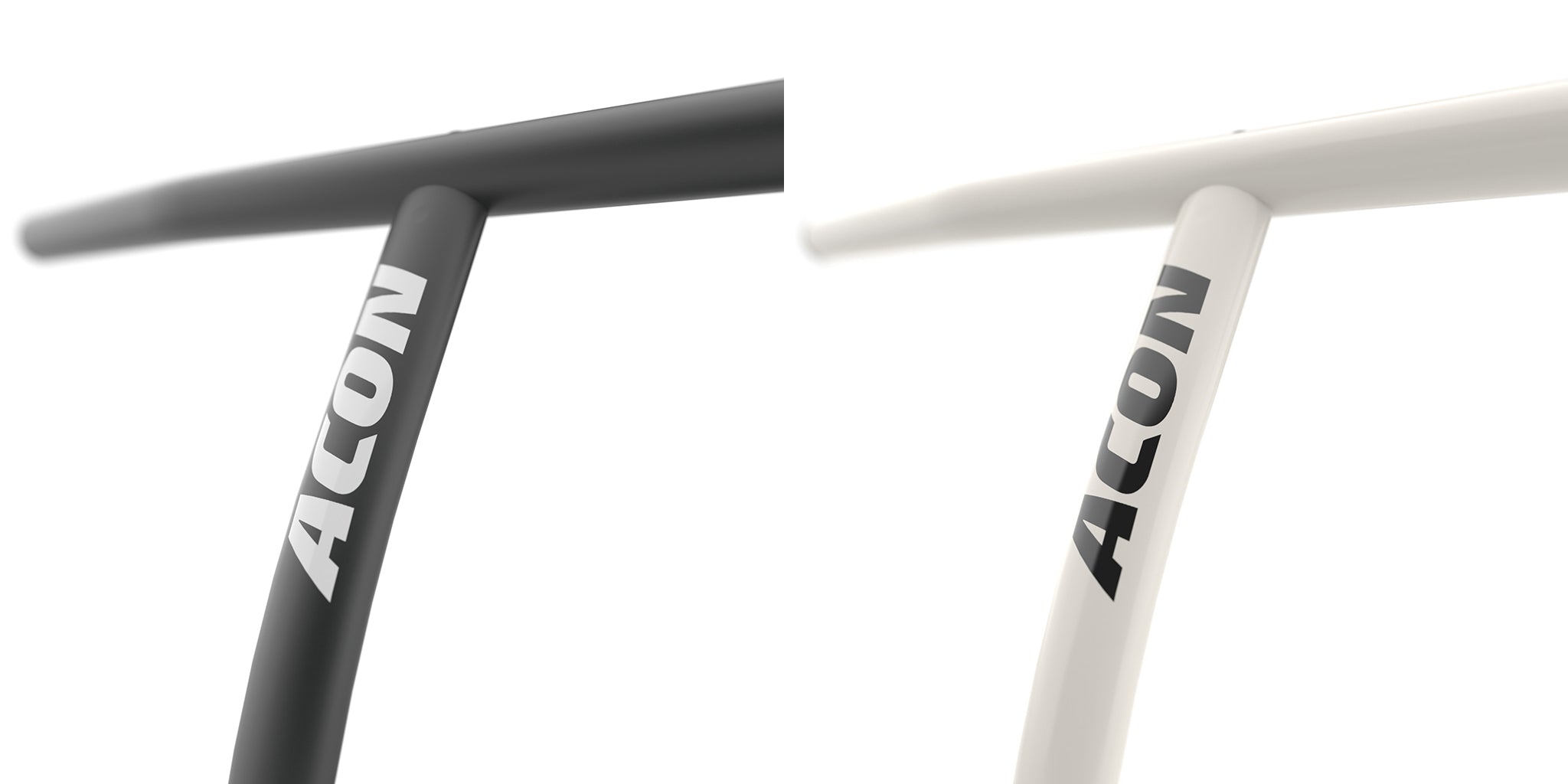
5-minute warm-up for your rebounder workout
Before you start any rebounder workout, it’s important to warm up your muscles through a variety of stretches and basic, simple jumps on the rebounder.
Using the handlebar for balance, start with some arm stretches up and over your head, reaching as far as you can without straining, stretching each side of your body. On the rebounder, start to gently bounce without actually lifting off the rebounder. Keep your back and shoulders straight and breathe evenly. If you are a beginner, hold onto the handlebar to keep your balance.
After a couple of minutes, start to bounce gently from one side of the rebounder to another, transferring your weight onto each foot as you bounce. At the same time, reach up and over your head with your arms and breathe in, and breathe out as you lower your arms back to your sides.
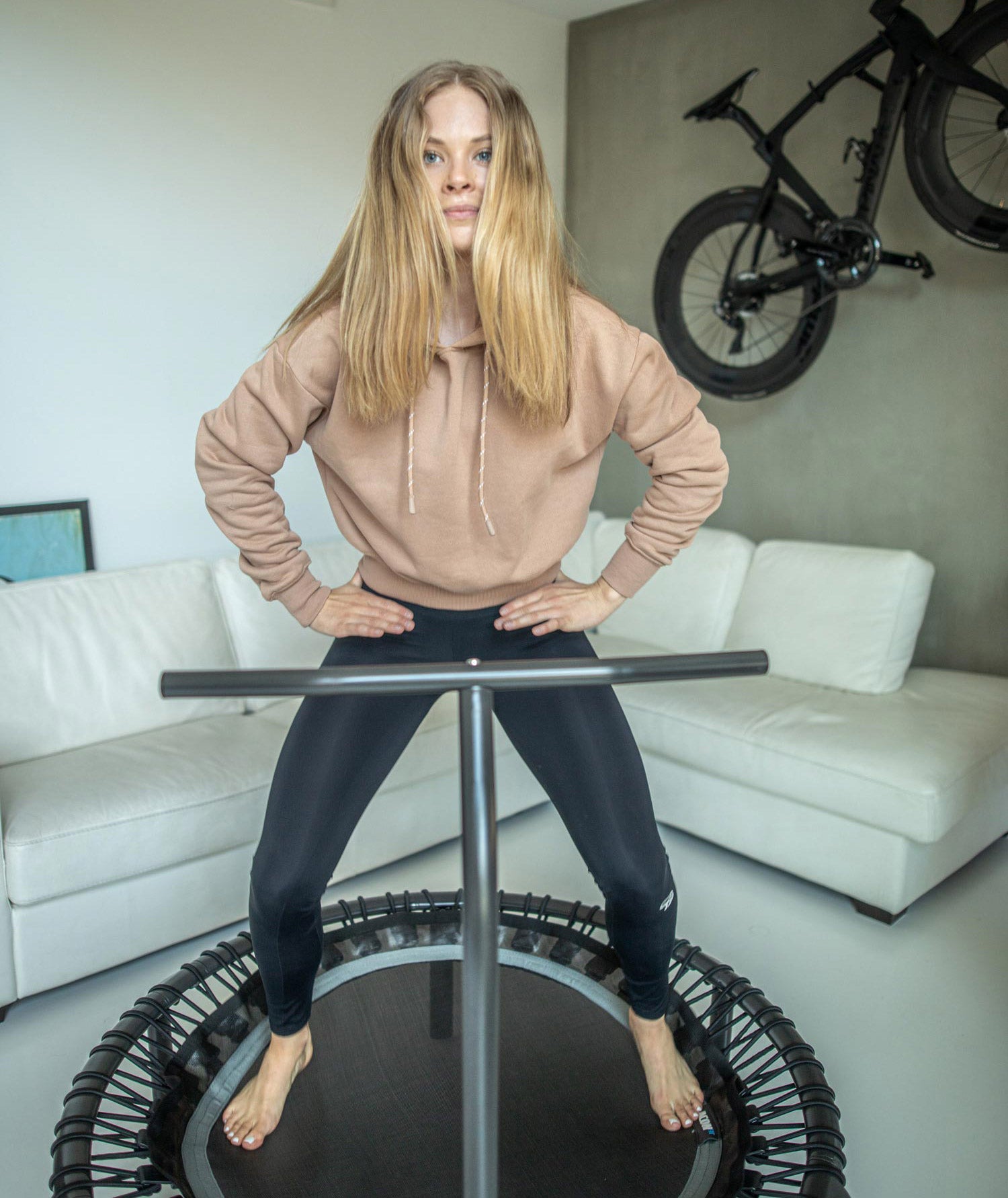
High intensity rebounder workout routine to scale up or down
Once your muscles have warmed up, aim to maintain each exercise for around 2-3 minutes for maximum benefit. A good way of making sure you manage your workout time efficiently, not spending too long on one exercise, set a timer for the required time length.
If you are a beginner, don’t overdo the exercises. Reduce the amount of time you spend on each one and simplify the moves as we’ve described below. The fitter and stronger you get, the more you will be able to push yourself.
Learn the moves by watching this video!
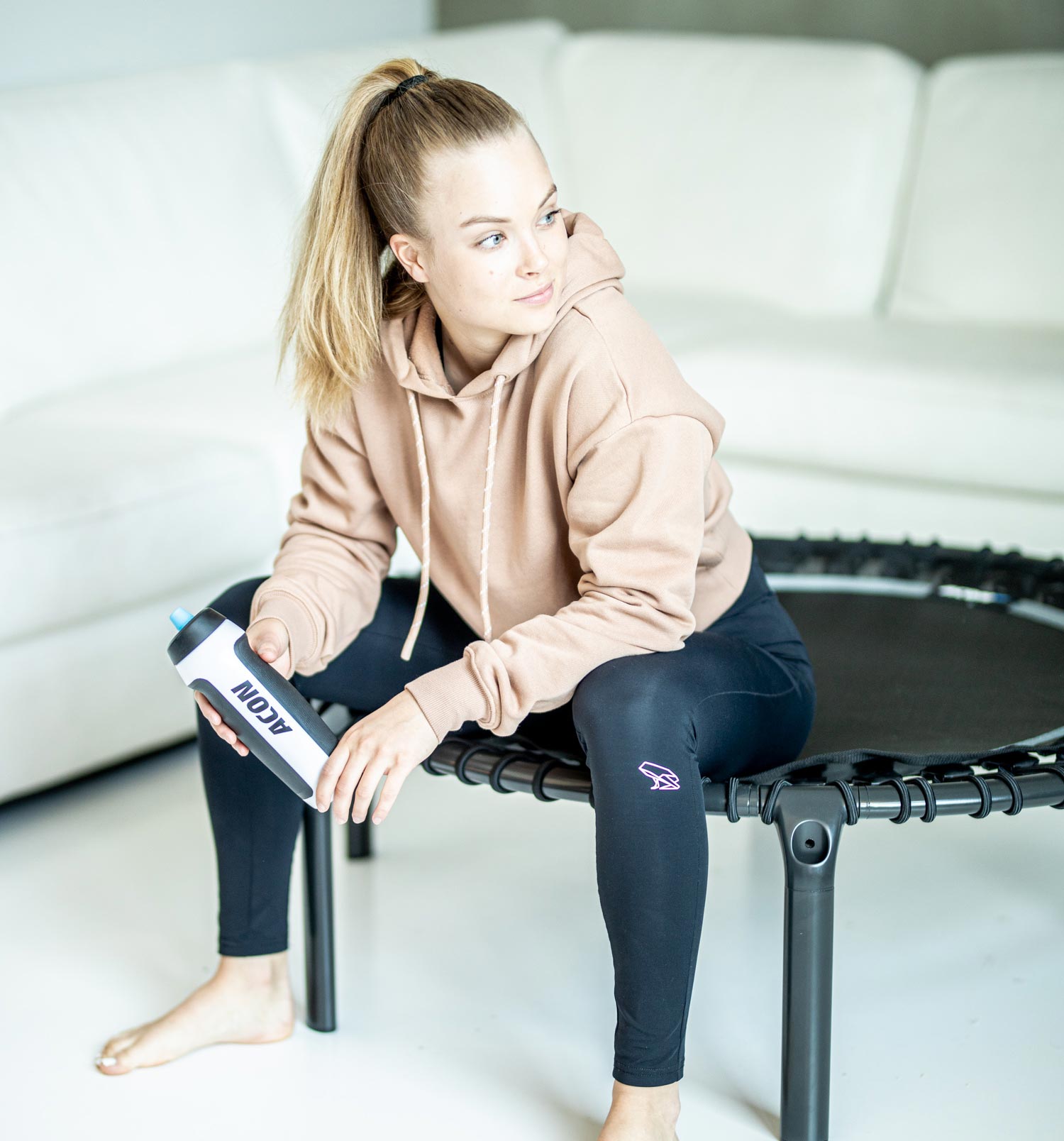
Fast jumping jacks
Bend slightly forward at the waist and keep your knees slightly bent, bounce and at the same time step forward with one foot onto your heel; then bounce again and at the same time, swap to your other heel. Repeat this movement quickly, moving your heel forward whilst the other foot lands on your toes.
Twisting
Keep your knees and feet together and as you bounce up, twist your lower body slightly so your knees are pointing at a 45° angle. As you bounce back up, twist the other way and keep repeating. If this is your first rebounder workout, you may hold on to the handlebar for stability and to make it easier, keep the bounce low and gentle to start with.
Slow jumping jacks
Stand up a bit straighter, keeping your knees slightly bent, and jump up but as you come back down, bend your knees and land with your feet apart. Push up from your knees and come back down in your start position.
Ski jumps
Ski jumps on a rebounder are similar to twisting; the only difference is that you are moving your body from side to side and turning your knees to a 45° angle inwards as you bounce, just as you would do if you were skiing.
Low ski jumps
Low ski jumps are a lower version with the body more bent at the waist and leaning a little more forward. For beginners, practice the skiing movement first without bouncing, allowing the movement of the rebounder to give you the feeling of moving up and down.
Basic jumps
Stand up straight with your knees and feet together, hands on your hips and bounce rhythmically up and down. As you jump up, point your toes downward to flex your ankles and land back down on the balls of your feet.
Squats
Squats are the perfect move for taking it slowly before intensifying the pace of the rebounder workout again with the next move. Stand with your feet on either side of the jumping surface area. Bend your knees and lower your body into a squat position, keeping your back straight and pushing your hands out in front of you. Then push up from your knees into an upright position, bringing your arms back to your sides. For better support and balance, hold on to the handlebar.
Fast high knees
Back to a quick movement; keeping your knees slightly bent and flexible, bend your elbows and hold out your hands in front of you. Step bounce, bringing each knee up alternately to your hand and back down again as though you are running on the spot. Don’t lift your knees too high to start with.
Knees to chest - jump
With this movement, instead of lifting alternate knees, jump with your knees together at the same time to meet your hands at waist level.
Knees to chest - supported
This movement is the same as the above but is supported by holding on to the handlebar. If you don’t have a handlebar, repeat the previous movement twice.
Sprint
The last high impact movement is the sprint; go up onto your toes, keep your knees slightly bent and flexible, bend slightly forward and ‘sprint’ on the spot, pumping with your arms at the same time. For beginners, slow down the sprint until you are more confident and fitter.
Cool down from your rebounder workout
It’s important to always cool down and stretch your muscles, relaxing your body and bringing your heart rate back down to normal after you have finished exercising.
Starting from the ground up, gently stretch your calf muscles, hamstrings and inner thigh. Next stretch your upper thighs and glutes before up to your oblique (body) muscles. You should also stretch your neck and shoulders, and finally your triceps (arm muscles). Try to hold each stretch for 10-15 seconds and keep breathing evenly.
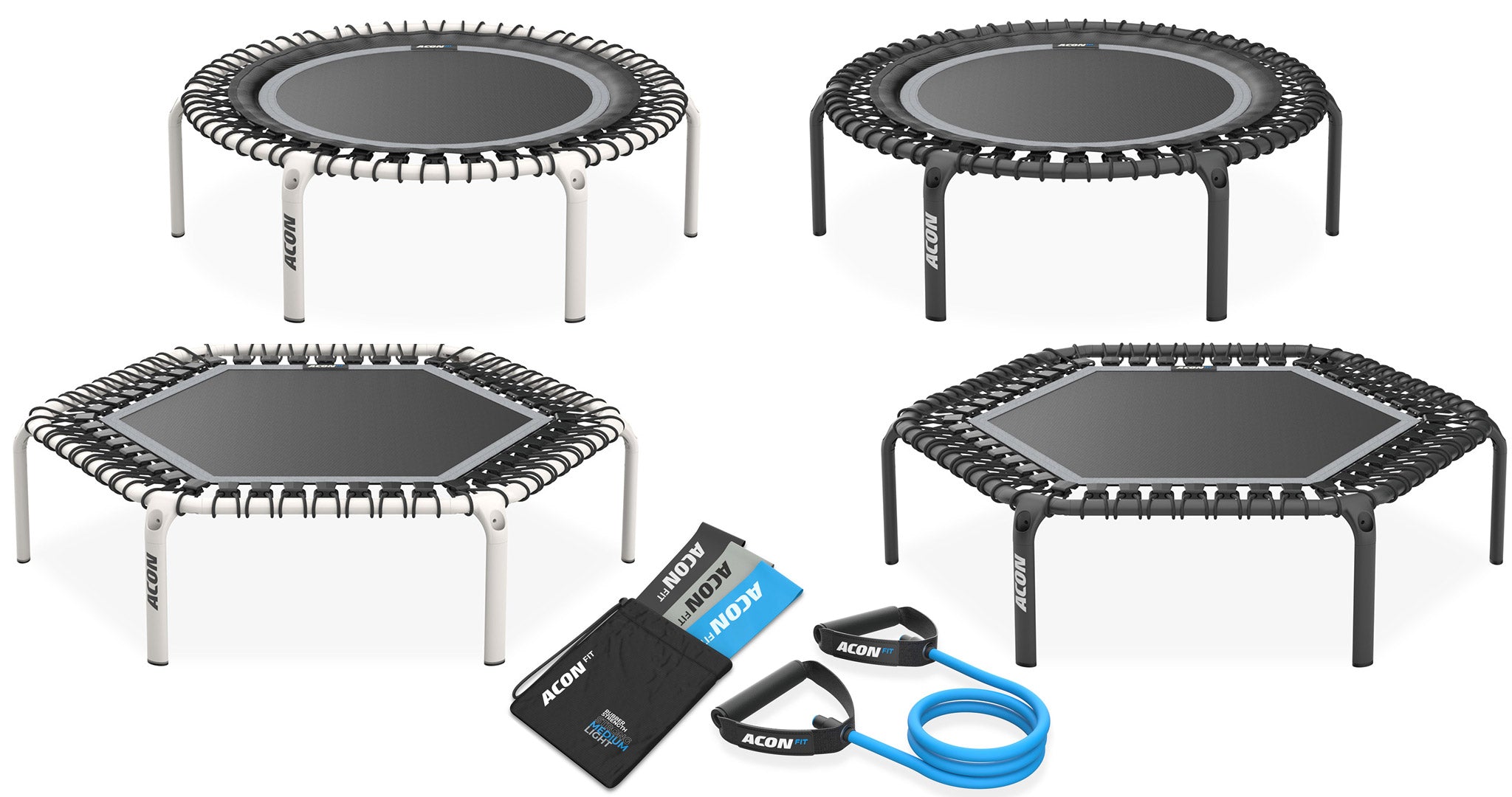
Making the most of your rebounder workout
A rebounder workout is not just for experienced jumpers; beginners can also get started on their journey to better health and fitness, too. If you’ve not done it before, don’t worry; it is one of the best types of exercise for people of all levels and ages. You don’t have to jump with any height, you can keep it low impact to start with and then build up to more intensive workouts as your health and fitness improves.
Called as the "Peloton of Trampolines" by none other than Sydney Ross, Acon FIT rebounders are designed to suit all ages and all abilities. The new Acon FIT 55" hexagon shape rebounder has one of the largest jumping surface areas available in the market and a wide, stable frame that provides a greater area for a higher intensity fitness routine. With a slightly smaller frame, the Acon FIT 44" still boasts one of the largest jump zones on the market, but with a lesser footprint it’s easier to tuck into small spaces.
To enhance your workout and step up your fitness level, use Acon FIT resistance bands as part of your routine. And for more rebounder workout routines, click here to view our Acon FIT YouTube channel to watch our workout and cool down videos!


